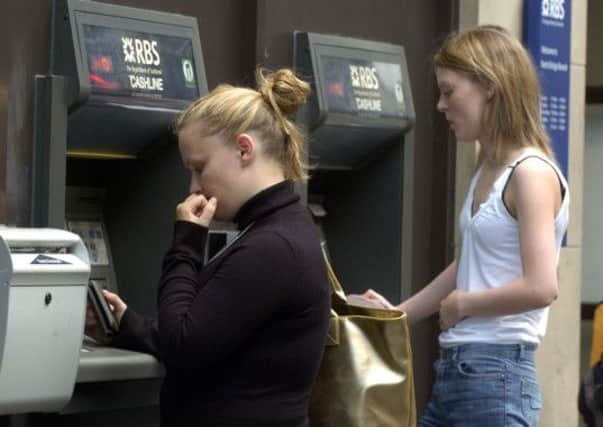RBS chief - ‘Free UK banking coming to an end’


Ross McEwan said that customers need to realise that they will have to pay for accounts, whilst also warning that further job cuts are inevitable at the taxpayer-owned bank.
His comments, which came just days after the bank announced £576 million of bonuses for its executives, prompted an angry response from the Labour Party which raised concerns that the less well off will be excluded from the banking system.
Advertisement
Hide AdAdvertisement
Hide AdAnti-poverty campaigners have claimed that 11 per cent of low income households do not have access to a bank account which makes it harder for them to receive welfare payments under the UK government’s benefit reforms.
Mr McEwan insisted that paid-for accounts should be “addressed in the market place.”
His comments came after he announced that RBS, which is 80 per cent owned by the taxpayer, has dumped its so called teaser rates for accounts.
He went on: “I think that’s where it’s going to end up longer term in this industry, as customers realise they are going to pay for it [current accounts] in some shape or form.
“It’s about transparency. If that’s the most transparent way of doing it, the industry will end up there.”
But his comments met with an angry response from Labour’s shadow business minister, Ian Murray, the MP for Edinburgh South.
He said: “Banks must not price the less well-off out of being able to open accounts.
“A lack of an account limits people’s access to welfare, credit and can become a poverty trap.”
Advertisement
Hide AdAdvertisement
Hide AdHe went on: “Banks like RBS are in danger of looking like they are profiting from the less well-off whilst dodging their social responsibilities. The government must do all it can to ensure those excluded from banking facilities are given services they can access.”
Andrew Tyrie, Tory chairman of the Treasury select committee, welcomed Mr McEwan’s comments.
“Ross’s remarks are a step in the right direction to securing more competition, which is a regulatory objective they [the regulators] can and should help take forwards. The sooner the better,” he said.
His committee published a report in 2010 recommending the end of free bank accounts, stating that “greater disclosure of information on cost is a pre-condition to greater competition”.
Mr McEwan is not the first banker to attack free banking.
Andrew Bailey, the deputy governor of the Bank of England, has described free banking as a “myth”.